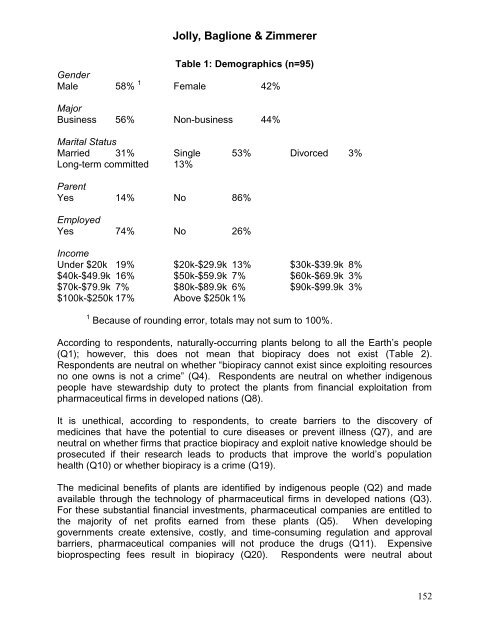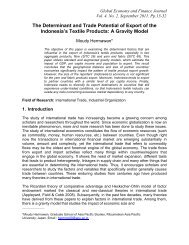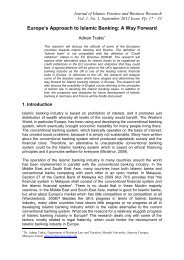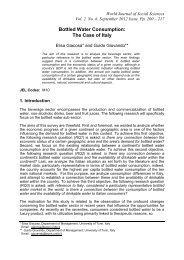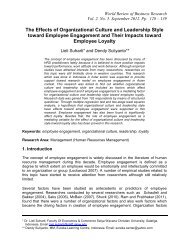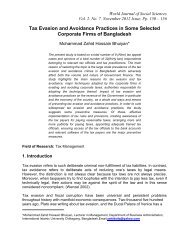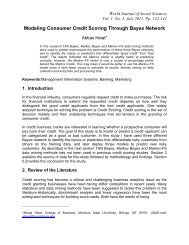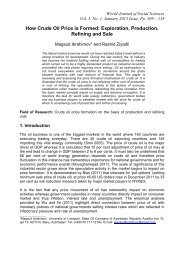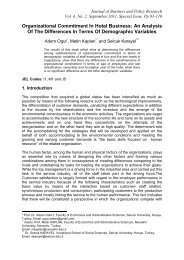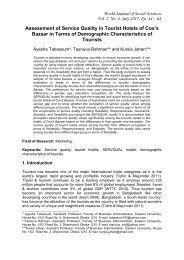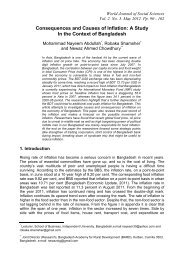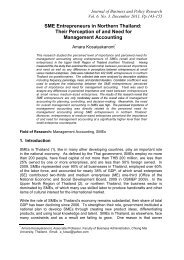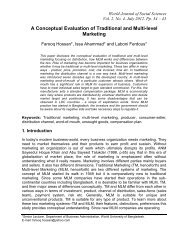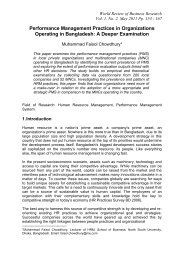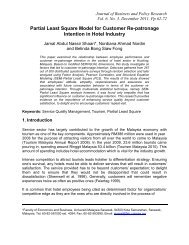An Empirical Study of Bioprospecting: Ethical Issues in ... - Wbiaus.org
An Empirical Study of Bioprospecting: Ethical Issues in ... - Wbiaus.org
An Empirical Study of Bioprospecting: Ethical Issues in ... - Wbiaus.org
Create successful ePaper yourself
Turn your PDF publications into a flip-book with our unique Google optimized e-Paper software.
Jolly, Baglione & ZimmererTable 1: Demographics (n=95)GenderMale 58% 1 Female 42%MajorBus<strong>in</strong>ess 56% Non-bus<strong>in</strong>ess 44%Marital StatusMarried 31% S<strong>in</strong>gle 53% Divorced 3%Long-term committed 13%ParentYes 14% No 86%EmployedYes 74% No 26%IncomeUnder $20k 19% $20k-$29.9k 13% $30k-$39.9k 8%$40k-$49.9k 16% $50k-$59.9k 7% $60k-$69.9k 3%$70k-$79.9k 7% $80k-$89.9k 6% $90k-$99.9k 3%$100k-$250k 17% Above $250k 1%1 Because <strong>of</strong> round<strong>in</strong>g error, totals may not sum to 100%.Accord<strong>in</strong>g to respondents, naturally-occurr<strong>in</strong>g plants belong to all the Earth’s people(Q1); however, this does not mean that biopiracy does not exist (Table 2).Respondents are neutral on whether “biopiracy cannot exist s<strong>in</strong>ce exploit<strong>in</strong>g resourcesno one owns is not a crime” (Q4). Respondents are neutral on whether <strong>in</strong>digenouspeople have stewardship duty to protect the plants from f<strong>in</strong>ancial exploitation frompharmaceutical firms <strong>in</strong> developed nations (Q8).It is unethical, accord<strong>in</strong>g to respondents, to create barriers to the discovery <strong>of</strong>medic<strong>in</strong>es that have the potential to cure diseases or prevent illness (Q7), and areneutral on whether firms that practice biopiracy and exploit native knowledge should beprosecuted if their research leads to products that improve the world’s populationhealth (Q10) or whether biopiracy is a crime (Q19).The medic<strong>in</strong>al benefits <strong>of</strong> plants are identified by <strong>in</strong>digenous people (Q2) and madeavailable through the technology <strong>of</strong> pharmaceutical firms <strong>in</strong> developed nations (Q3).For these substantial f<strong>in</strong>ancial <strong>in</strong>vestments, pharmaceutical companies are entitled tothe majority <strong>of</strong> net pr<strong>of</strong>its earned from these plants (Q5). When develop<strong>in</strong>ggovernments create extensive, costly, and time-consum<strong>in</strong>g regulation and approvalbarriers, pharmaceutical companies will not produce the drugs (Q11). Expensivebioprospect<strong>in</strong>g fees result <strong>in</strong> biopiracy (Q20). Respondents were neutral about152


